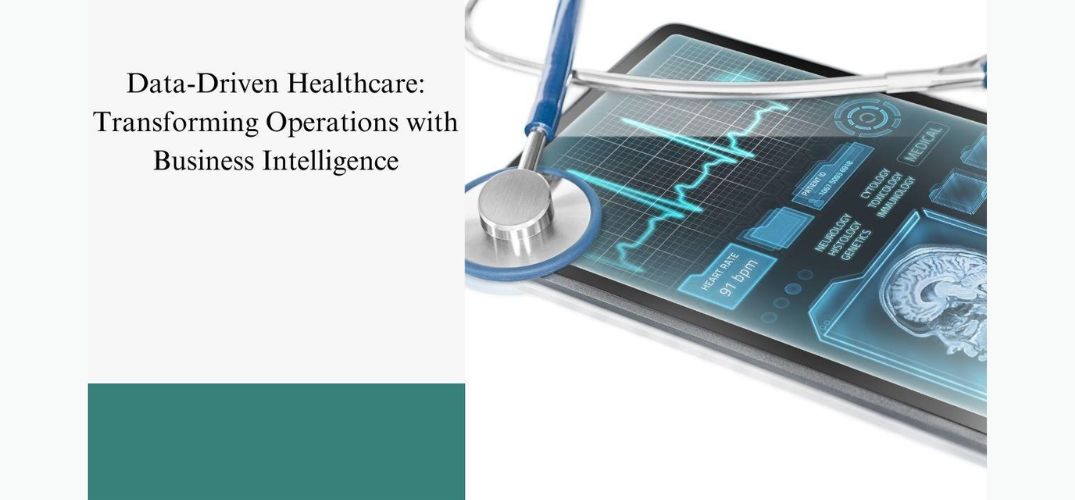A forward-thinking innovator, Devika Rajhamundry explores the transformative role of Business Intelligence (BI) in healthcare. With expertise in data analytics and strategic planning, her research emphasizes how BI unifies fragmented systems, enhances data-driven insights, and revolutionizes organizational decision-making, ultimately contributing to improved efficiency and better healthcare outcomes.
Breaking Down Data Silos for Unified Insights
In healthcare, data is often fragmented across various systems, including electronic medical records (EMR), patient management systems, and revenue cycle management platforms. This siloed information creates challenges in forming a cohesive view of organizational performance, hindering effective decision-making. Business Intelligence (BI) serves as a critical bridge, integrating these disparate sources into centralized repositories using tools like extract-transform-load (ETL) processes and advanced analytics platforms. By unifying data, BI empowers healthcare leaders to transition from intuition-driven to evidence-based strategies, addressing inefficiencies, optimizing workflows, and improving patient outcomes. This transformation paves the way for strategic insights, operational excellence, and enhanced care delivery.
Analytical Tools Shaping the Future
Business Intelligence (BI) frameworks leverage advanced analytical tools to convert raw data into actionable insights. Using multidimensional analysis through OLAP cubes, decision-makers can explore key performance metrics across various dimensions, such as patient demographics or service delivery timelines. Real-time reporting capabilities enable healthcare organizations to identify and address emerging trends swiftly, fostering resilience and adaptability. This dynamic approach empowers leaders to make informed decisions, optimize workflows, and enhance overall operational efficiency, ultimately driving better outcomes for both patients and the organization.
Enhancing Quality Management and Patient Care
The integration of Business Intelligence (BI) has transformed quality management in healthcare. Advanced tools like sentiment analysis and text mining extract valuable insights from patient feedback, uncovering patterns in care satisfaction. These insights enable organizations to implement precise quality improvement initiatives, boosting patient outcomes and operational efficiency. By leveraging data-driven strategies, healthcare providers gain a comprehensive view of performance, fostering a culture of continuous improvement. This proactive approach ensures higher satisfaction rates, streamlined processes, and an enhanced focus on delivering exceptional patient care.
Value-Based Care: Optimizing Costs and Outcomes
The transition to value-based care models in healthcare has underscored the importance of Business Intelligence (BI) tools in balancing patient outcomes with cost efficiency. Predictive analytics help identify high-risk patient groups, allowing healthcare providers to implement proactive interventions and improve care delivery. BI insights also enable organizations to optimize resource allocation, streamline operations, and design effective preventive measures tailored to specific populations. By leveraging data-driven strategies, healthcare systems can achieve sustainable progress toward value-based objectives, ensuring better patient outcomes, reduced costs, and enhanced overall performance in a highly competitive and evolving industry.
Strategic Impact and Operational Efficiency
Integrating Business Intelligence (BI) into healthcare operations yields significant benefits, including a 25% reduction in decision-making cycle times and a 30% improvement in forecast accuracy. These efficiencies enable better resource allocation, streamlined workflows, and heightened responsiveness to market dynamics. By leveraging BI, healthcare organizations can navigate the complexities of a data-driven landscape more effectively, enhancing their ability to deliver quality care, optimize operations, and remain competitive in a rapidly evolving industry. This strategic approach drives measurable improvements in performance and patient outcomes.
Preparing for the Future
The evolution of Business Intelligence (BI) frameworks in healthcare increasingly integrates artificial intelligence (AI) and machine learning (ML) technologies, driving advancements in predictive analytics, decision support systems, and real-time monitoring. These cutting-edge innovations promise to revolutionize healthcare operations by enabling more accurate forecasting, efficient resource allocation, and improved patient care. To fully leverage these next-generation BI capabilities, organizations must prioritize investments in data literacy programs and robust governance frameworks. Such initiatives ensure seamless adoption, maximize the value of AI-driven insights, and support a data-informed culture that fosters sustainable growth and enhanced healthcare outcomes.
In conclusion, through innovative frameworks and analytical tools, Devika Rajhamundry highlights the transformative impact of Business Intelligence (BI) in healthcare. By bridging data silos and enabling data-driven decision-making, BI empowers organizations to enhance operational efficiency, improve patient outcomes, and address emerging challenges. Her insights lay the foundation for a future where healthcare evolves from being merely data-rich to becoming truly insight-driven.



































